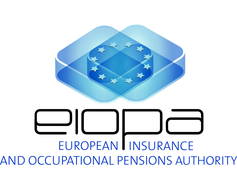
On Friday 4 October 2013 EIOPA announced the appointment of the members of their stakeholder groups. Whilst reserving judgement until more information is available, EuroFinUse is cautiously optimistic about the new composition, although much could still be improved.
EIOPA - the European Insurance and Occupational Pensions Authority - is part of the European System of Financial Supervision, established in 2010. It is an independent authority supervised by the European Parliament, the Council of the European Union and the European Commission. In this capacity, its main responsibilities are to support the stability of the financial system, transparency of markets and financial products as well as the protection of insurance policyholders, pension scheme members and beneficiaries.
In order to facilitate EIOPA’s consultation with stakeholders in Europe, it set up two stakeholder groups that include representatives of the industry, consumers and beneficiaries as well as academics: the Insurance & Reinsurance (IRSG) and Occupational Pensions Stakeholder Groups (OPSG). Members are appointed to these groups following an open selection process.
According to EIOPA itself, the stakeholder groups are aimed at ensuring a close dialogue with consumers, other retail users, employees’ representatives and academics, as well as with industry, SMEs and relevant professional associations. Yet, over the years, while the ESAs Stakeholder Groups have been in place, the end-users have been drastically underrepresented in these groups.
Finally, following protests from the consumer side and pending complaints to the European Ombudsman, EIOPA just announced that the IRSG will now contain 6 consumers’ and 3 users’ representatives and the OPSG will comprise 5 "beneficiaries’" representatives out of 30 members each. At first glance, the new composition of both stakeholder groups seems indeed to better reflect the need for a more balanced representation of end-users. An improvement, yes, but persons with economic ties to the industry still seem to account for more than 50% of the membership of both stakeholder groups. EuroFinUse will have a closer look at the affiliations and economic interests of the newly appointed members before making a more definite assessment.
EuroFinUse and its member organisations, from their side, count now four members instead of one: Jean Berthon (Faider, France) in the IRSG and Guillaume Prache (EuroFinUse), Klaus Struwe (Dansk Aktionærforening, Denmark) and Janko Sebo (ITC, Slovakia) in the OPSG.
